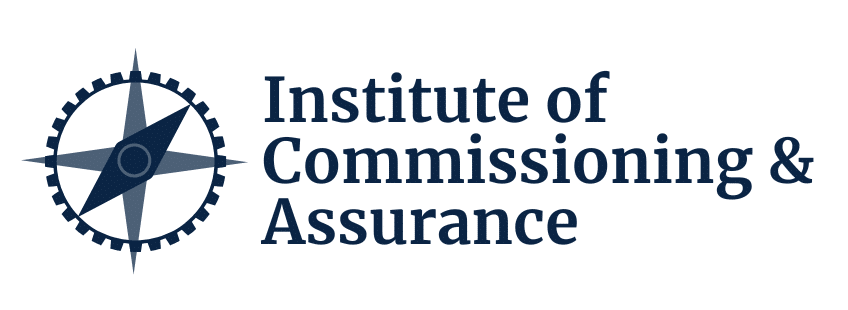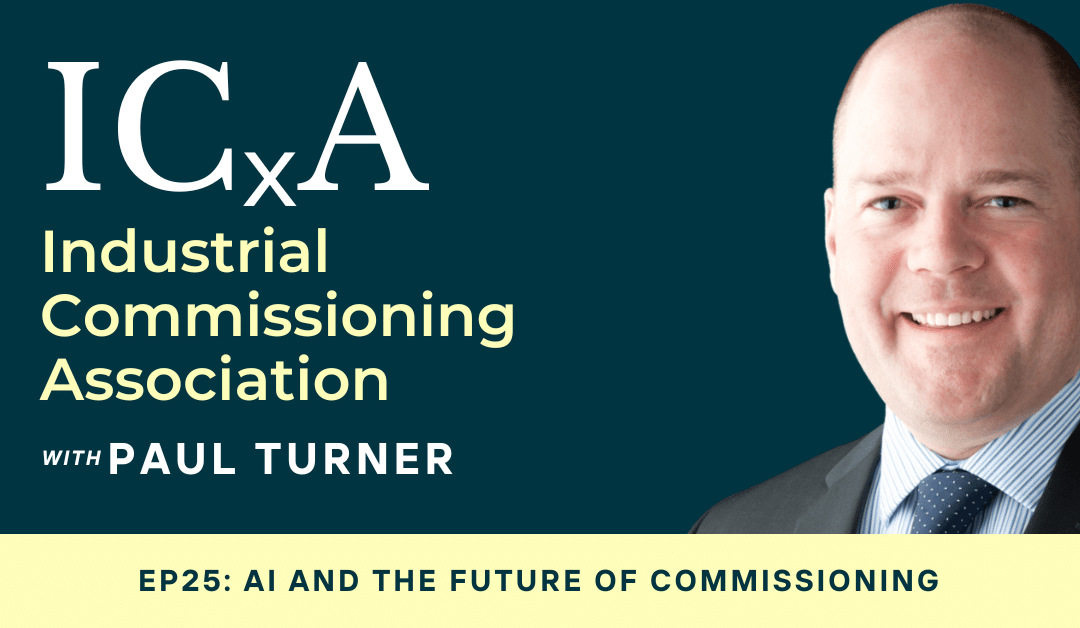In the 1970s before computers were widely used, engineering drawings would be marked up, then faxed to site to indicate the changes required. The project team at site would receive the fax, maybe have a question about the update, fax back some hand-drawn sketches with questions for clarification, and back and forth until the information was correctly conveyed to site.
Fast forward over the last 50 years, particularly over the fast-growing information age of the last 25 years, and the amount of information generated on projects is overwhelming. Everyone has a computer in their pocket more powerful than the computer that landed men on the moon 55 years ago, and instant access to information at their finger-tips.
The amount of information generated on projects is crushing – too much for any one person to keep up with on a daily basis. When commissioning folks receive 200-300 email per day, they have to make a choice – either be in the field with their team to keep up with the project, or stay in the construction trailer responding to emails, because it is impossible to do both effectively. All of this is excellent information and adds to the project, but there is not enough time in each day for the human brain to process all this information.
Information is created from engineering groups for new designs or design changes, information is created from construction groups for quality inspections and vendor reports, and information is created during on-site testing from automation systems that generate more and more data to display on HMIs each project. It becomes impossible to deal with this overwhelming overload of information to make sure you have the most current updates to make fully informed decisions. And commissioning requires a fast pace of decisions in order to keep projects progressing.
Data infrastructure has continued to get more powerful over the years, and we are at a tipping point with the recent advancements of AI in how fast these systems will progress. Think about the changes in the last 15 years – the first iPhone was introduced only 17 years ago. When you think about what has changed in the last 15 years, it is hard to imagine what will change in the next 15 years. One thing that is certain is that the pace of change is rapidly increasing – what took 15 years to develop in the past may only take 5 years to develop in the future.
The AI revolution is real. When some of the AI developments were announced in late 2022, it was still not clear if AI was ready to become a revolutionary technology, or if it would just be a passing fad (similar to the virtual-reality hype that came and went with Meta/Facebook). Two years later, AI is becoming a massive power-house for revolutionary change. Big companies like Google, Facebook, Amazon, Microsoft, Telsa, and others are pouring billions of dollars into AI infrastructure, with an insatiable desire to build more and bigger hyperscale data centers all over the world and the need for 3X more electrical demand to power this growth. Big companies are forecasting investment of billions into new and upgraded nuclear facilities just to meet this power demand.
So what does this mean for the commissioning industry? How is AI going to impact how we successfully complete commissioning?
The AI revolution that is upon us will affect the commissioning industry in 2 ways.
First, just due to the growth and demand for new energy sources and to produce energy in a sustainable way, there will be a lot more projects. It is not a trivial challenge to create new energy sources to triple the existing energy infrastructure in a short period of time – there is a lot of existing energy infrastructure that must be considered and balanced, and the global projects community, including commissioning expertise, will need to work together to address these challenges. With this increased demand for energy, there will be a lot more projects, and a lot more supply chains to meet this demand, and the need for more commissioning experts to work on projects. The need for smart commissioning experts to lead these projects to completion is paramount if we are to meet cost, schedule, and quality objectives to actually make these projects useful. The increased energy demand is in addition to the current climate initiatives to achieve sustainability, which megaprojects play a large role in achieving. These are huge initiatives that take years of planning to develop and complete.
The second impact AI will have on commissioning is how we do our work. Will there be millions of Optimus Tesla robots that take over the roles of commissioning? I think this is unlikely in the near future – commissioning roles require complex thought processes to solve unique engineering challenges, and the AI systems just aren’t at this point yet – we still need smart humans to apply their expertise and guide project teams to success. But the amount of information generated on projects is actually a best-use case for AI. And we can use these new AI systems to help us deal with the information overload we are currently dealing with on projects.
It is no secret that the construction industry has been slow to adopt new technology advancements as other industries have in the last few decades. In the case of commissioning, many project teams are still using spreadsheets to manage and track commissioning. Now, change is hard – very hard. And it is large corporations that are involved in funding and executing megaprojects, where the corporate wheels often turn very slow when addressing change and when making decisions on projects. So it is understandable that the construction industry has been slow to change. But it is also hard to imagine any project teams still using spreadsheets in 5 years from now to manage commissioning, not because they are slow to change, but because any project teams that remain slow to adapt will just not be offered any projects to work on with their outdated commissioning delivery methods. With the huge demand for projects and the rapid pace of change, the money flows to the groups with proven track records that can deliver, not to the groups still using methods from the seventies.
Here is an example of a use-case for AI on project commissioning. Let’s assume there are 2000 loop check sheets to complete. Bob completes each of his check sheets in 3 hours, and he is available to start on the next batch on Monday. Susan completes each of her check sheets in 2 hours, but she is currently busy, and not able to start on the next batch of check sheets until later in the week on Thursday. What is the best use of resources based on other project priorities and the timeline that all loop checks must be complete?
If the project is modelled in completion software with AI analyzing all the information, it already knows the answer. The AI system can make a suggestion for the user to approve. Or better yet, AI just knows the answer and assigns the next work tasks automatically with no need for human intervention. And even if something changes or there is a delay on Tuesday, the AI adjusts and re-assigns Wednesday’s activities based on the most up-to-date information. There are many more examples like this where having current information and using this information in real-time to make decisions can significantly improve projects by the day and by the hour. It no longer makes sense to wait until Friday’s spreadsheet update to get the current information, to make decisions for next week. Decisions happen at a much more rapid pace, sometimes even without human intervention.
This will happen on projects – there is no law of physics that says this is impossible, so these capabilities will exist in the software systems we use, and the technology exists today to make this happen. Project teams that ignore these capabilities will be left behind and be naturally excluded from participating in future projects due to outdated methodologies.
Now these are complex systems, and it does not make sense for each company to create their own solutions – we need to rely on the software vendors that are dedicated to solving these problems and choosing the systems that are at the forefront of this development that best meet our project needs.
We are on the cusp of a data-revolution on projects. Many of the CMS software vendors have already started to incorporate AI into their systems. And these systems will continue to advance significantly in the next 5 years as the AI capabilities explode in the near future.
But new technologies alone are not the be-all, end-all solution to improve productivity. There are 3 fundamental components that make every project successful – people, process, tools.
The timeline for development of the ICA Global Commissioning Standard is to have a first version released by the end of 2024. The standard is currently under review by our team of industry experts, with comments and feedback to be returned by the end of November. The goal is to consolidate comments into the next draft for review in December, to be released by the end of the year. This is an ambitious goal, and if not by the end of the year, the standard will certainly be issued early in 2025.
The ICA Global Commissioning Standard is for the benefit of the commissioning industry as well as everyone working on projects to finally have a guiding standard of commissioning best-practices to help all groups working on projects succeed in meeting cost, schedule, and quality objectives. Stay tuned for more updates as we work to get this new commissioning standard into your hands as soon as possible.

The timeline for development of the ICA Global Commissioning Standard is to have a first version released by the end of 2024. The standard is currently under review by our team of industry experts, with comments and feedback to be returned by the end of November. The goal is to consolidate comments into the next draft for review in December, to be released by the end of the year. This is an ambitious goal, and if not by the end of the year, the standard will certainly be issued early in 2025.
Only when you bring these 3 fundamental components together will your projects succeed:
- People – You need the best and the brightest people to manage projects – ensure you have the smartest commissioning folks involved in projects right from the start
- Process – Apply the best-practices in the ICA Global Commissioning Standard to projects. Learn from others, there’s no reason to repeat the same expensive mistakes others have already learned from.
- Tools – Leverage the best CMS Software systems available to manage commissioning. Don’t try to get by with something that “kind-of” meets your needs (or worse, spreadsheets) – get advanced/specific tools that meet your exact project-specific needs to manage risk, manage commissioning, and gain project efficiency.
Change is certainly difficult, and the status-quo approach is definitely the much easier path to continue on. But if we are to address the global challenges ahead of us, we will need to adapt to the changing world around us.
But don’t worry, despite all the change that AI is causing, we’re all in this together. The Industrial Commissioning Association is here to help make sense of all this change so that we can all succeed on projects together. Become an ICxA Member to stay up to date on the current technologies and how you can apply them to your projects. When we stick together as a commissioning community, we can build great things together!


Recent Comments